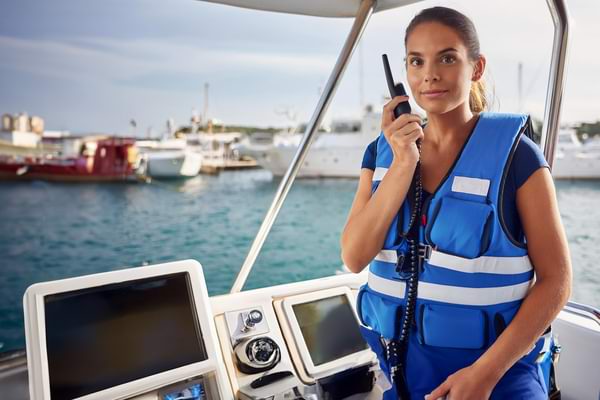
Marine Radio Licence Course
Online Training
In-Person Assessment
All Fees Included
SROCP
Short Range
LROCP
Long Range
Done in just 4-6 hours!
Course Calendar
Select A Course Below to View Available Dates
Select Location
Marine Radio Licence Courses You Can Trust
Our training courses are highly rated by hundreds of satisfied customers:
Who is the Marine Radio Licence Course for?
The Marine Radio Licence is a must for anyone who owns a Boat fitted with a Radio (VHF, MF, or HF) – under the Radiocommunications Act of 1992 it’s a legal requirement for operation!
It’s not just for recreational use either, counting towards commercial qualifications like Coxswain/Master 24.
ABC Sydney can get you a Marine Radio Licence fast, whether you need to get a Short Range Operator Certificate of Proficiency (SROCP), or a Long Range Operator Certificate of Proficiency (LROCP).
It’s a great option to pursue after completing your General Boat Licence Course with us, and will ensure that you can safely operate the Radio in case of an emergency.
The Marine Radio Certificates of Proficiency never expire or need renewal, so they’re yours for life, and are recognised internationally.
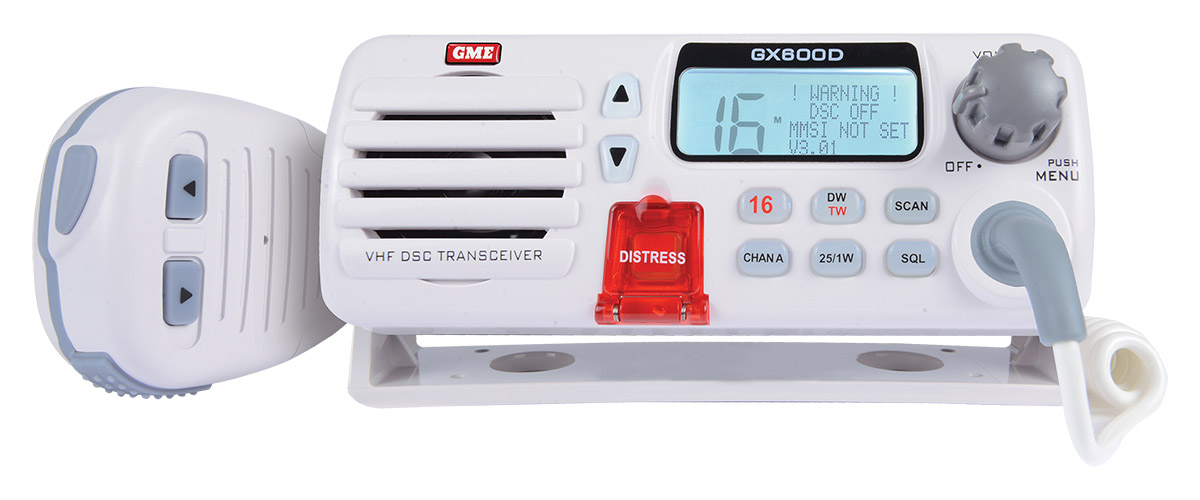
Marine Radio Certificate Comparison
SROCP
LROCP
27MHz Radio
Yes
Yes
VHF Radio
Yes
Yes
Inland / Enclosed Waters
Yes
Yes
MF / HF Radio
No
Yes
Offshore / Open Waters
No
Yes
Ocean Use
No
Yes
Complete the SROCP or LROCP Certificate in just 4 steps!
1
Online Radio Course
At Your Own Pace

- Learn Marine Radio skills with e-learning
- Access the training from your own devices
- Summary quizzes and revision included
2
Multiple-Choice
Marine Radio Test
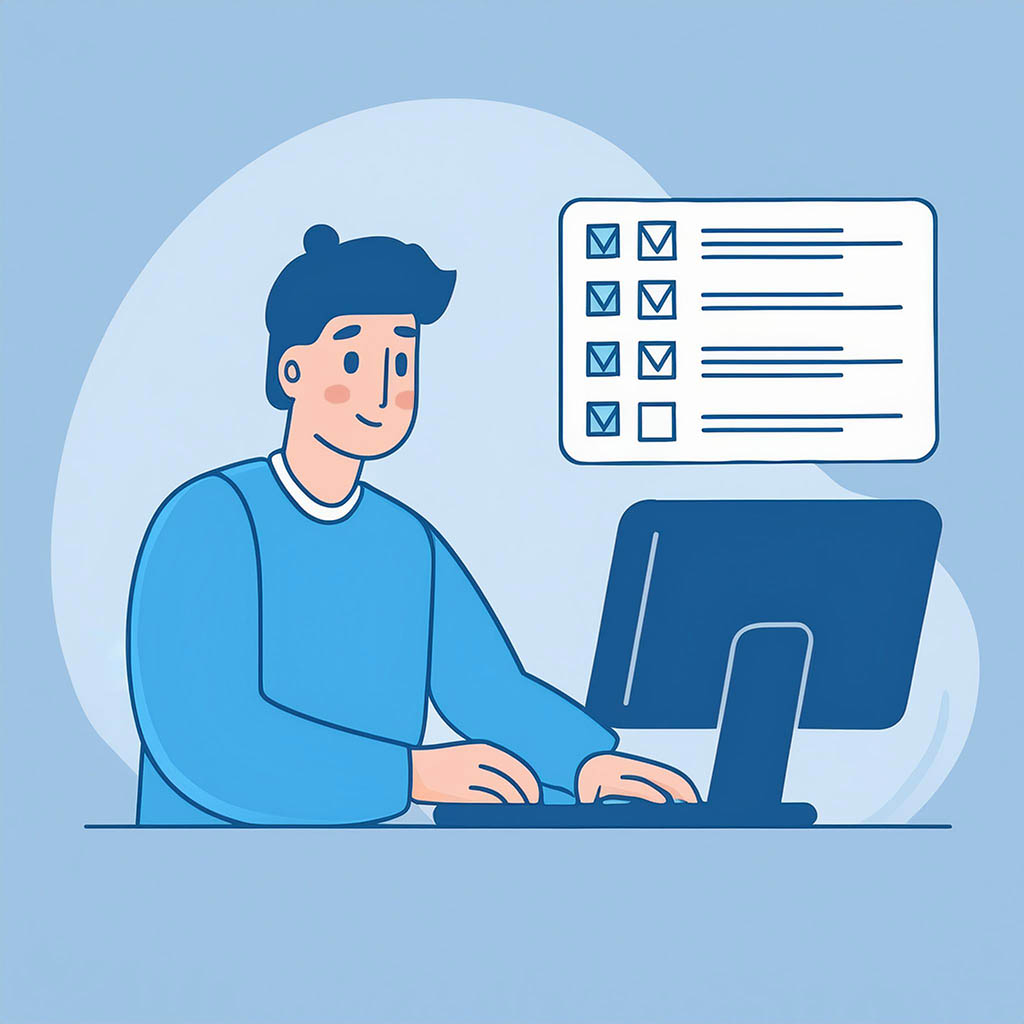
- Sit the Marine Radio Test with ABC in person
- Comfortable location in Artarmon, Sydney
- Done on a computer, laptop, or tablet
3
Complete Practical Assessment
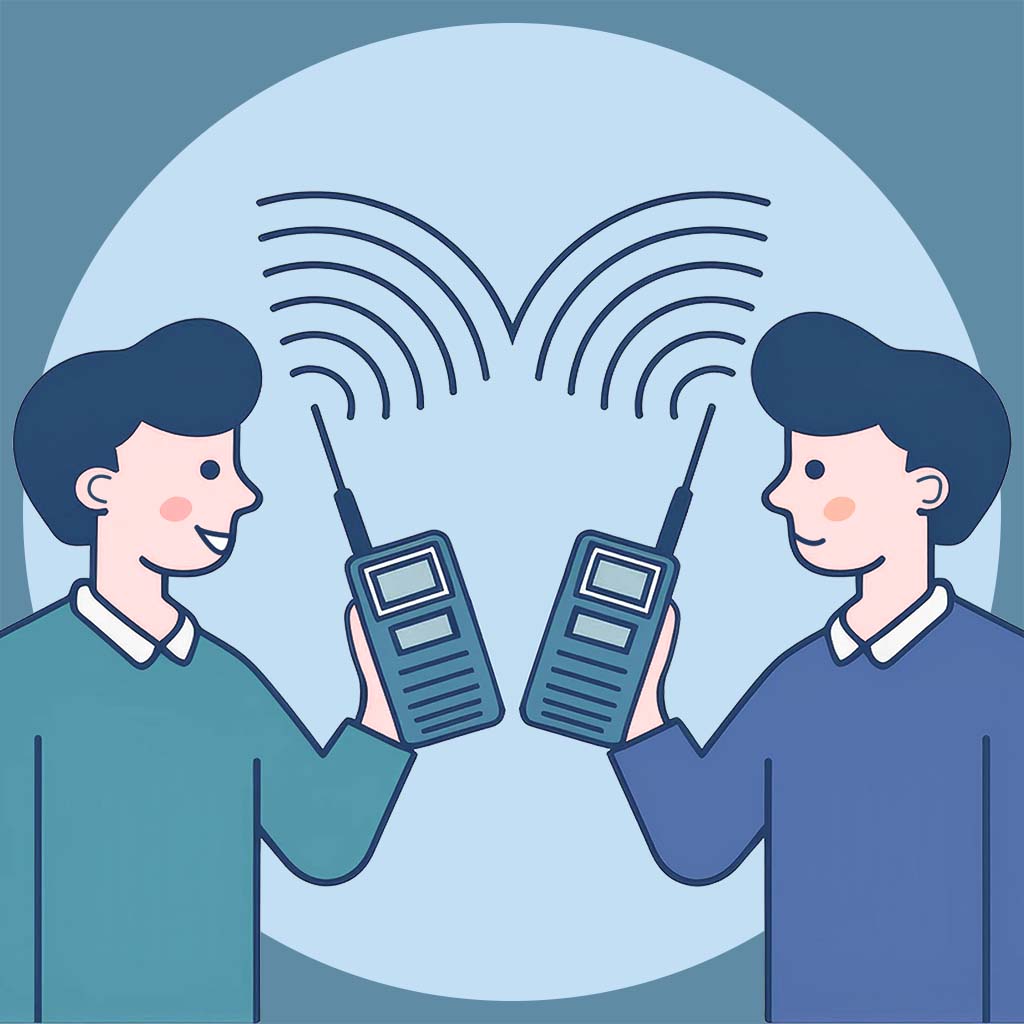
- Do the Marine Radio Practical scenario
- Set correct channels and follow procedures
- Make & receive marine broadcasts
4
Get your Marine
Radio Licence
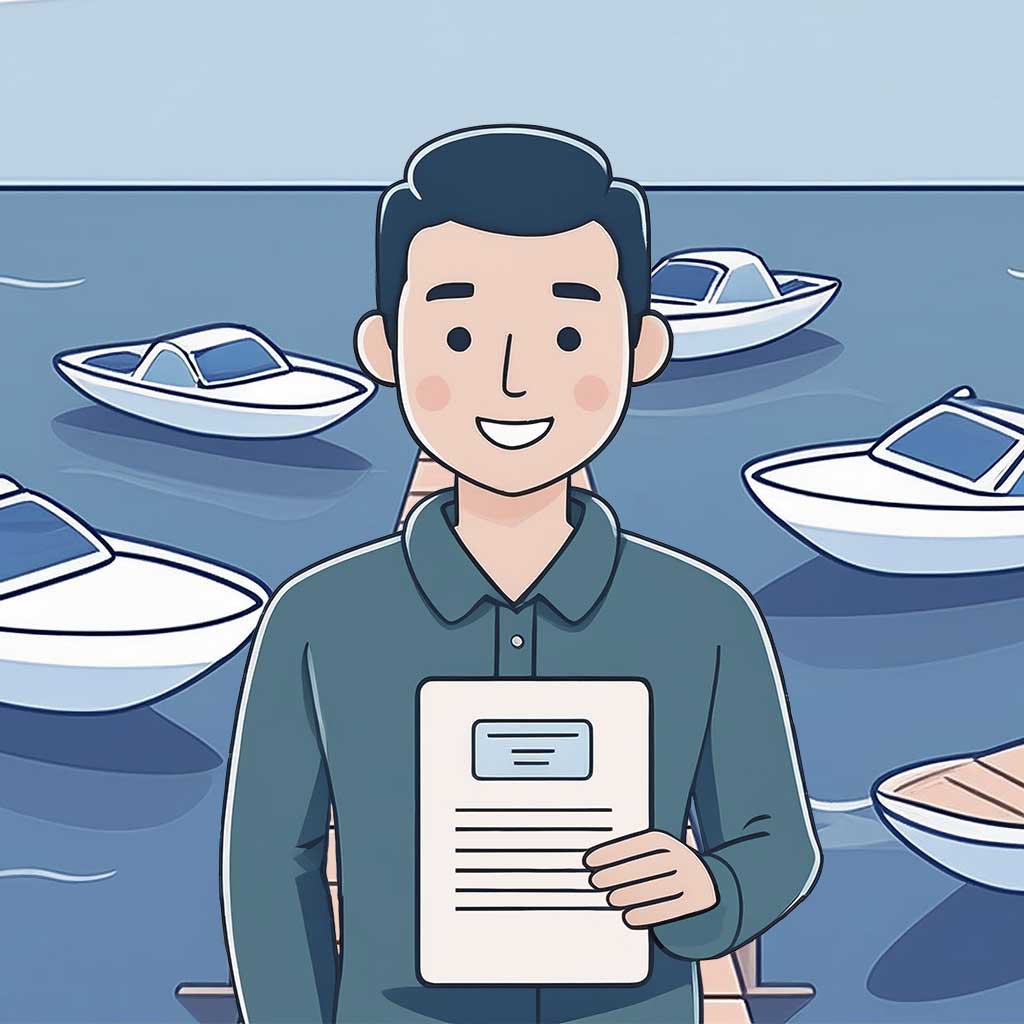
- Get your Marine Radio Licence Certificate
- We’ll lodge it for you with no extra fees
- Receive the SROCP or LROCP in email or post
Know someone chartering a boat overseas?
Give the gift of a Marine Radio Licence Course!
1
Online Radio Course At Your Own Pace
How do I study for the Marine Radio Licence?
The best way to study for the SROCP or LROCP is through the Online Marine Radio Course.
You’ll learn how to select a channel or frequency, make a broadcast, emergency situations, and much more!
We offer this course with Above & Beyond Boating, and you will receive a login for the course within 48 hours.
This course covers all the content for your selected type, and guides you through all the training you need to be ready for the examination.
When you’ve finished the course and are feeling confident, get in touch with us to book your test.
Is the Marine Radio Licence Exam hard?
Sitting the multiple choice exam is very straightforward, and we find that all students are highly prepared once the online training is completed. Each course has a test:
SROCP Exam
The SROCP test consists of 25 questions, with a 30 minute time limit and a pass mark of 18/25.
LROCP Exam
For those doing LROCP questions are doubled to 50, twice the time of 60 minutes, and pass mark of 35/50.
It’s not unusual to complete the exams with plenty of time remaining in the session.
2
Multiple-Choice Marine Radio Test
3
Complete the Practical Radio Assessment
What happens in the Marine Radio Licence Practical?
This is where you put your newly-learned radio knowledge to use!
Both the SROCP and LROCP begin with a role-play scenario involving these topics on a simulated radio:
Operate a Marine Radio Unit
Switch it on and select a channel/frequency
Use Digital Selective Calling (DSC)
Show you can control the Radio properly
Demonstrate Typical Broadcasts, Mayday Calls
With a focus on time-sensitive emergencies
Finishing the Marine Radio Licence
Now you’ve completed all the training and assessments, you’re done!
We’ll send your application into the Office of Maritime Communications for you, with no additional fees due.
How long does processing take?
Processing takes an average of 3 weeks for the OMC to approve a SROCP or LROCP, though this can stretch out to 4 weeks during peak periods.
Once your assessment is verified and processed it’ll be posted to your address, and you can use it for work or play! It never expires, all that’s left is to enjoy!
4
Get Your Marine Radio Licence
Marine Radio Licences
as easy as A, B, C!
Course Calendar
Select A Course Below to View Available Dates
Select Location
Frequently Asked Questions
SROCP – $375
Short Range Operators Certificate of Proficiency
All-Inclusive Fee
LROCP – $389
Long Range Operators Certificate of Proficiency
All-Inclusive Fee
Is there any pre-requisite knowledge?
There is no pre-requisite knowledge for the Marine Radio Licence Course, and the course is designed so that beginners can successfully complete the training.
What if I have a hard time with reading or learning?
If you have trouble with Learning, Literature and Numeracy, please let us know before your course so we can best plan to help you.
We are happy to discuss and always strive to support everyone where possible.
Which language is used during the Course? Can it be translated?
All Course material is provided in English, and all training content is also delivered in English.
There is no opportunity to have a translated version, or to bring an interpreter with you to the assessment.
Please get in touch with us if you’d like to know more about your options for other languages.
What Equipment do I need for the E-Learning?
You’ll need to have your own device to access the E-Learning, we recommend a Desktop PC, a Laptop, or a Digital Tablet.
Do I need to own a marine radio?
You don’t need to own a radio first to complete the training, and you won’t be required to have any previous experience in using one.
What is a MMSI Number?
Standing for Maritime Mobile Service Identity, the MMSI Number is a 9-digit code that you can enter into your Marine Radio Unit.
It is used to identify you any time you use the radio, whether it’s a routine check in or an emergency call.
You may also have an EPIRB (emergency position-indicating radio beacon) that requires your MMSI Number to properly activate.
You can head to the Australian Maritime Safety Authority website to read more about the MMSI.
What are the requirements for an MMSI Number?
To apply for an MMSI you must have:
- A Vessel registered in Australia (except the NT)
- A SROCP or LROCP
- Name, Address, Phone Number of Registered Vessel Owner
- Emergency contact details
- Vessel details such as make and model
- Marine Radio Unit details, and type such as VHF, MF, or HF
How do I apply for the MMSI?
Once you have filled out the requirements, you’ll need to fill out Australian Maritime Mobile Service Identity Application Form 89 with AMSA, and email it to them as detailed on their site.
They’ll process it and issue it to you with no charge.
What is the minimum age for the course?
You must be 16 years or older to complete the training and apply for the Marine Radio Licence.
What is a VHF Radio?
A VHF Marine Radio uses Very High Frequency transmission to broadcast voice for communication between a vessel and a transceiver, which could be another boat, a handheld VHF receiver, or a station on land.
They’ve got a range of 20 nautical miles, which is plenty to cover most recreational boating activities – the audio quality is great and VHF normally has a solid connection.
VHF Radio uses ‘Channels’ that allow simple broadcast frequencies to be used in Simplex (one-way) or Duplex (two-way) communication.
While the VHF Radio itself does not need to be licenced or registered with the Australian Communications and Media Authority (ACMA), the Operator of the Radio requires a Certificate of Proficiency.
What is a MF/HF Radio?
Medium Frequency (MF) or High Frequency (HF) both work very differently to a shorter-range VHF radio.
Instead of sending their signal more-or-less directly toward the receiver, a MF/HF Radio aims the transmission slightly skywards, and bounces it off the Earth’s Ionosphere to return back to land – usually over the horizon.
These longer range radios have up to 200 nautical miles of range, which is essential for international travel or chartering a vessel far from shore.
Unlike the easy-to-use channels of VHF, MF/HF Radio requires the Operator to select the appropriate wavelength of transmission for the distance of the receiver.
Modern MF/HF Radios also support VHF broadcast, so the Long-Range LROCP covers all these different uses.
All MF/HF radios must be licenced or registered with the ACMA, which will also give it a unique call sign identifier.
What is a 27MHz Radio?
27MHz Radios have fallen out of fashion as they have many limitations compared to the other two options.
They use a large wavelength to broadcast a signal, which is easily blocked by buildings or hills, and while they have 10-15 nautical miles of range this must be in a direct line.
This can be further degraded by weather, which also makes it sound crackly.
We don’t recommend this type of radio any more – look to VHF or above.